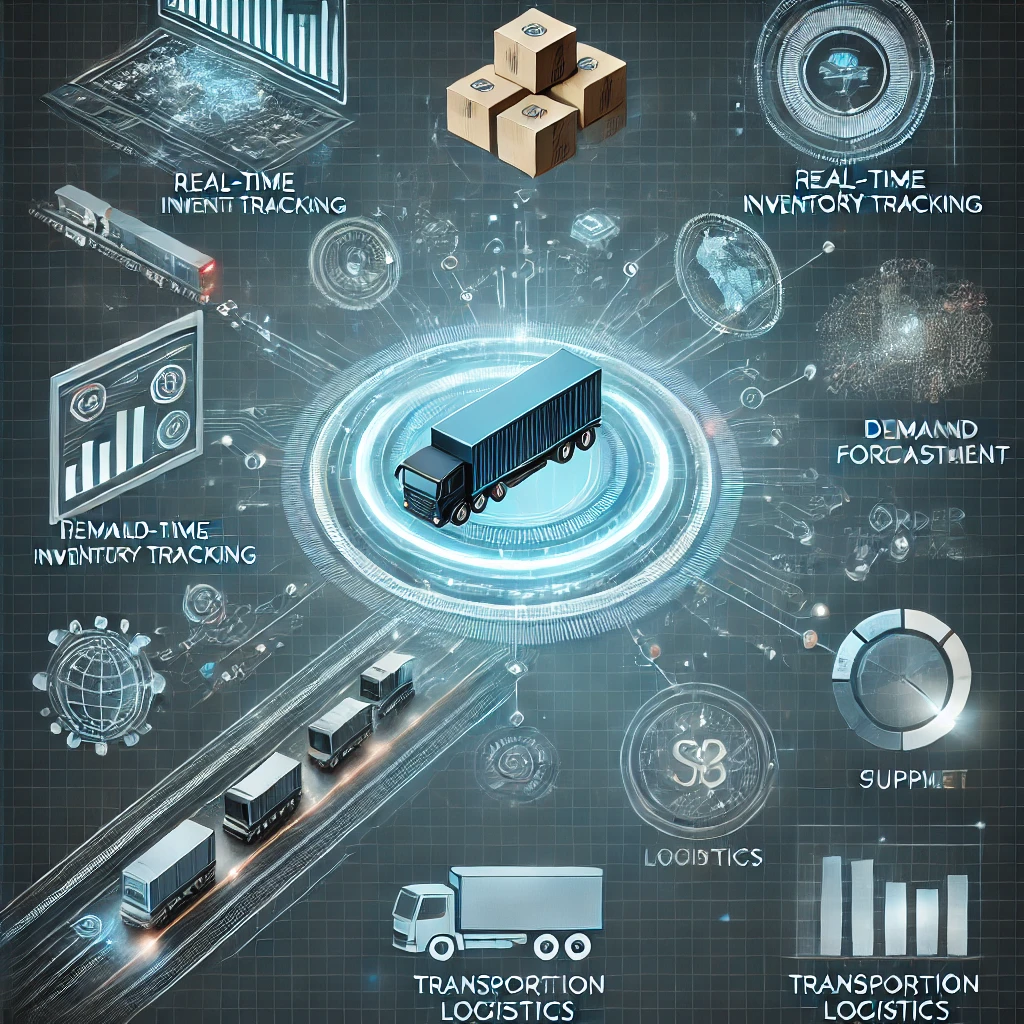Revolutionizing Operations with Supply Chain Management Software: A Comprehensive Guide
Understanding Supply Chain Management Software
Supply chain management software is a comprehensive solution designed to oversee and optimize all aspects of a company’s supply chain. It encompasses various functions, including:
- Demand forecasting
- Procurement and sourcing
- Inventory management
- Warehouse operations
- Order fulfillment
- Transportation and logistics
- Supplier relationship management
- Analytics and reporting
By integrating these functions into a single platform, supply chain management software provides a holistic view of operations, enabling better coordination and decision-making across the entire supply chain.

Key Benefits of Implementing Supply Chain Management Software
- Enhanced Visibility: Gain real-time insights into every aspect of your supply chain, from raw materials to final delivery.
- Improved Efficiency: Automate manual processes, reduce errors, and streamline workflows across your entire supply chain.
- Cost Reduction: Optimize inventory levels, reduce waste, and improve resource allocation to minimize operational costs.
- Better Demand Forecasting: Utilize advanced analytics to predict market trends and adjust supply accordingly.
- Increased Agility: Respond quickly to market changes, disruptions, or new opportunities with data-driven insights.
- Enhanced Collaboration: Improve communication and coordination with suppliers, partners, and customers.
- Regulatory Compliance: Ensure adherence to industry regulations and standards with built-in compliance features.
Essential Features of Supply Chain Management Software
When evaluating supply chain management software, look for these key features:
- End-to-End Visibility: Real-time tracking and monitoring of all supply chain activities.
- Demand Planning: Advanced forecasting capabilities to optimize inventory levels.
- Inventory Optimization: Tools to balance stock levels, reduce carrying costs, and prevent stockouts.
- Supplier Management: Features for vendor evaluation, selection, and relationship management.
- Order Management: Streamlined processes for order capture, fulfillment, and tracking.
- Warehouse Management: Tools for optimizing layout, picking, packing, and shipping processes.
- Transportation Management: Route optimization, carrier selection, and shipment tracking capabilities.
- Analytics and Reporting: Robust data analysis tools and customizable reporting features.
- Integration Capabilities: Ability to connect with other business systems like ERP, CRM, and financial software.
Implementing Supply Chain Management Software: Best Practices
- Define Clear Objectives: Establish specific goals and KPIs for your supply chain management initiative.
- Conduct a Thorough Assessment: Evaluate your current processes to identify areas for improvement.
- Choose the Right Solution: Select software that aligns with your business needs, scalability requirements, and budget.
- Plan for Data Integration: Ensure smooth data transfer from existing systems to the new software.
- Prioritize Change Management: Prepare your team for the transition with comprehensive training and support.
- Implement in Phases: Consider a staged rollout to minimize disruption and allow for adjustments.
- Monitor and Optimize: Continuously evaluate performance and make data-driven improvements.
The Future of Supply Chain Management Software
As technology evolves, incorporating advanced features such as:
- Artificial Intelligence for predictive analytics and autonomous decision-making
- Internet of Things (IoT) for real-time tracking and condition monitoring
- Blockchain for enhanced transparency and traceability
- Machine Learning for continuous process optimization
- Digital Twin technology for supply chain simulation and scenario planning
Staying informed about these trends can help you choose a forward-thinking solution that will serve your business well into the future.
Conclusion
Implementing the right supply chain management software can transform your operations, leading to increased efficiency, reduced costs, and improved customer satisfaction. By carefully considering your business needs and following best practices for selection and implementation, you can harness the full power of management software to drive your business forward in today’s competitive landscape.
For businesses looking to revolutionize their supply chain operations, Linbis logistics software offers a comprehensive suite of tools. With its advanced features, user-friendly interface, and scalable architecture, Linbis empowers businesses of all sizes to optimize their entire supply chain, from sourcing to final delivery. Experience the power of end-to-end supply chain visibility and control with Linbis.
